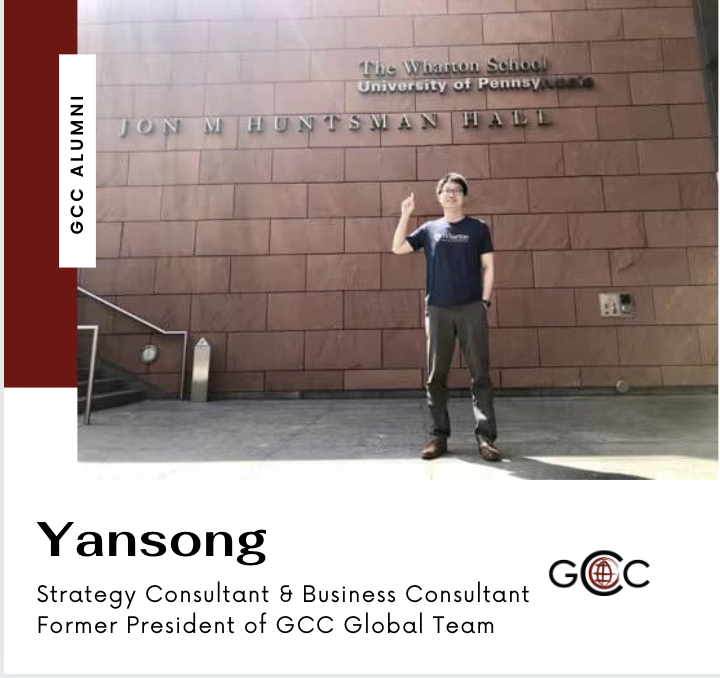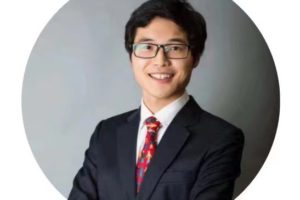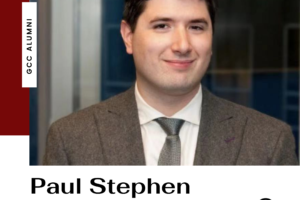Introduction
Please give a short self-introduction
Hi everyone, I’m Yansong and I’m a past president of the GCC Global Team. I went to Carleton College for my undergraduate degree, then got my MBA from Wharton School of Business, and I currently work at a startup in California.
GCC
Could you please share your experience at GCC? What was your most memorable experience there?
Everyone is involved in the organization as a volunteer because GCC works as an NGO. Bringing people together as such a team is actually not easy because people are self-driven to accomplish their tasks. When I was the president of GCC Global Team, my team members were very hardworking and willing to help others, and everyone was conscious of making connections with different people. Many of our team members had already graduated and were working at the time, but we were all willing to devote a lot of our time outside of work to GCC as a club, such as soliciting sponsorships for events. One of the most impressive events was the GCC Global Summit held at Cornell Chapter. Because of the time constraint at that time, we needed to quickly identify the guests for the summit. Our Cornell Chapter members were very helpful and found great guests in a short time, and negotiated with local businesses to get event sponsorship. Before the conference, all of our Global Team members flew to Cornell and rented a B&B to get together. Many of our chapter members from the US and Canada also came to Cornell to discuss the preparation and process of the summit. We worked from the night before to coordinate and set up the venue, and when we were hungry, we shared pizza together. I remember that we worked until the early morning that night and started the GCC Global Summit early the next morning, which was a very tight schedule. I think the experience was very memorable. We all got together, had the same ideals, and worked for the same thing. For myself, I’m very interested in the educational and social aspects, and I love creating opportunities for everyone. I have created a small non-profit platform to help students connect with young professionals and allow them to understand and explore their own possibilities in the workplace.
How did your experience with GCC help you in your later career? How did you transfer your skills and knowledge learned at GCC into your own professional work? Your own professional work?
I feel that GCC has been a good exercise for my people and team management skills. Although our positions in GCC are different, we are all equal and our members are all very good students from various schools. How to supervise the members to complete their tasks efficiently and on time will be very helpful for my future work. Additionally, because we are an NGO, our funding source is mainly through donations, so how to get people to donate is very demanding in terms of marketing and schedule management. The guests we invite to every GCC event are elites from all walks of life, thus how to deal with different people to get face-to-face communication opportunities is also a very important skill I learned at GCC. My later community and study experience at Wharton School of Business has paved the way for my career development.
Transition
I noticed that you were double majoring in math and psychology, and you went to Wharton. Do you find it better to work after graduation and get a MBA degree than go to graduate school directly after graduation?
I think for myself, it is better to work first to find the direction I am interested in and have a preliminary understanding of the workplace before I go to MBA. Through this way, you can go to school with questions and study after you have a clear direction of your future career development, which will be more rewarding. I entered the consulting industry first to understand the business problems that may exist in different industries. Then I went on to do equity research, which was more on the investment management side. Through these work experiences I learned what skills I needed, and then I went to Wharton with my goals in mind for my MBA. At the same time, I had a clear plan for my career after the MBA – to join a startup and help other companies go public, which is what I am doing now.
Work Experience
What does a typical day look like for you? Can you talk about the work-life balance? The work-life balance in a startup is very much a matter of self-regulation, because the pace of a startup is very fast and there is very little free time on weekends, so I have to do most things myself. My current position is in the three directions of business operations, strategic analysis and data analysis, and I will go wherever the company needs me. My current work is mainly project management, project design, company development strategy development and operation optimization. When I have time, I travel with my family, and we go to a different country every year. Now I am limited by the epidemic, so at home I sing and play guitar, because I like music very much. Sometimes I also play basketball with my friends.
What is a common skill you see in successful young candidates in your field?
Computer science and data science are very popular right now. In most of the students I interviewed, everyone was generally very good at programming, but everyone was relatively lacking in business acumen. The young candidates I admire most are those who can program, understand data, and have business acumen. The soft skill of business acumen is hard to find in most students. The ability to use programming to translate data into insights, summarize such insights and then translate them into concrete programming language to get useful results is a very valuable skill. Also, I think the skill of communicating with people and the skill of gaining a deep understanding of the general direction of the industry you are in, the economic environment, and finding the pain points of the industry is also very important.
How should we develop the skills of business sense and business acumen?
Read more, I am referring here to the more intellectual, more difficult to chew books. We can learn from the experiences of those who have gone before us through reading. I think history, economics-related books and biographies of famous people can be a good way to open our eyes, let us understand more about the world we live in, and thus be inspired.
What advice would you give to recent graduates who want his / her application to stand out?
Aspiration should be high. I think a lot of people are stuck on immediate things, like finding a job. We should always look at what our long-term goals are instead of being a go-getter. I went to Carleton as an undergraduate, and almost all of my classmates who went here had a sense of community after graduation, and I think that was the most valuable education my undergraduate school gave me. You can’t just look at what you’ve done, but you have to think about whether you’re contributing to society and the people around you. Success is not only defined by the wealth and fame you have, but more importantly by what your own inner goals are. In the process, you may gain more by helping others, but this needs to be based on a strong inner foundation. Life is repetitive and boring, so it’s easy to get caught in a cycle where we can’t see the head, when only you can pull yourself out of such a cycle and cheer yourself on. I think the motivation that supports you to keep moving forward is the faraway place that may be out of reach right now but you want to reach.








